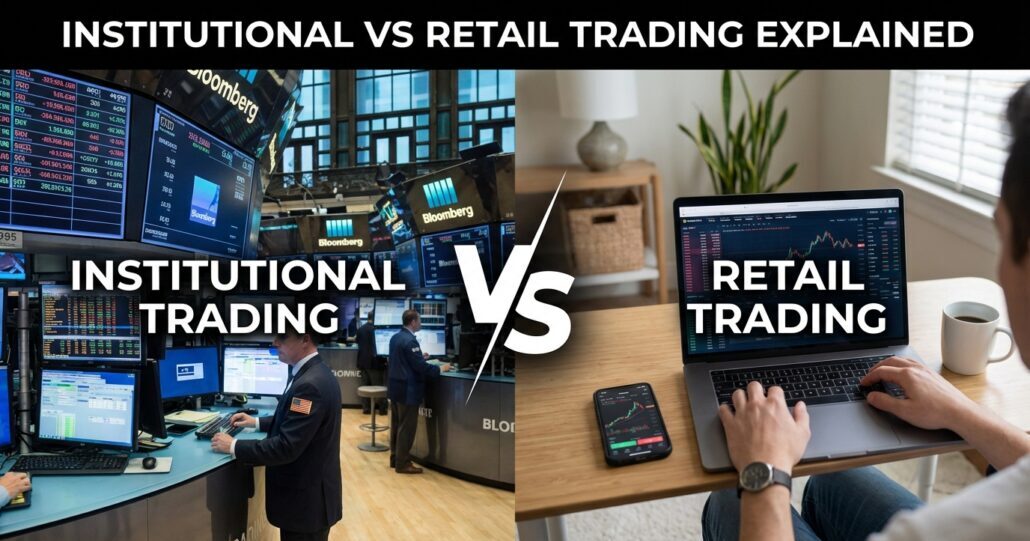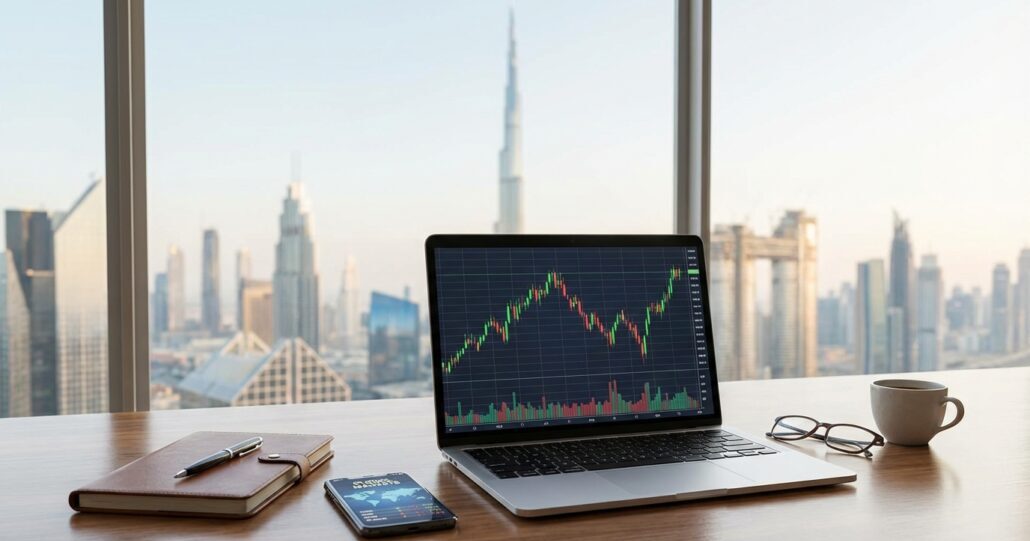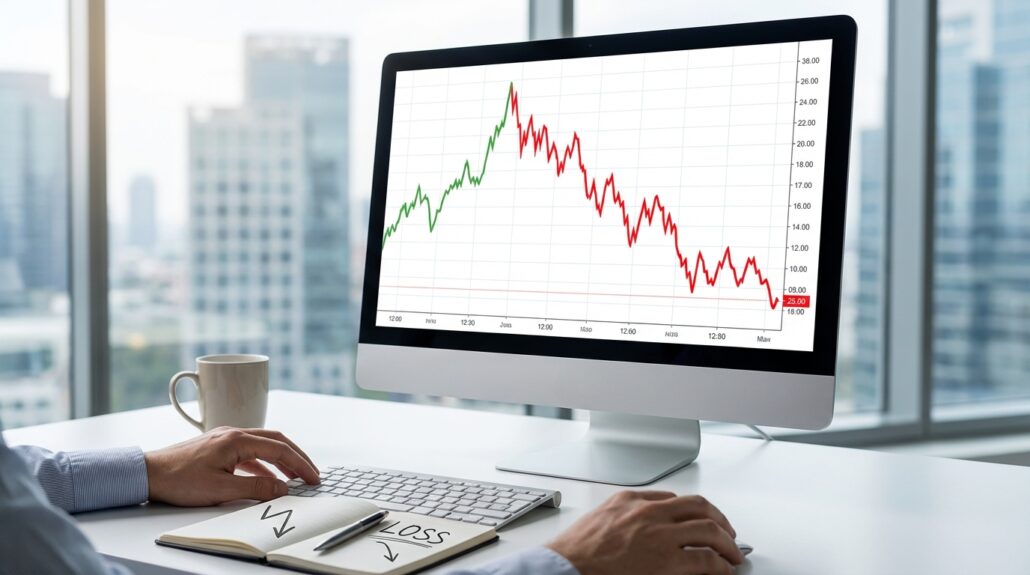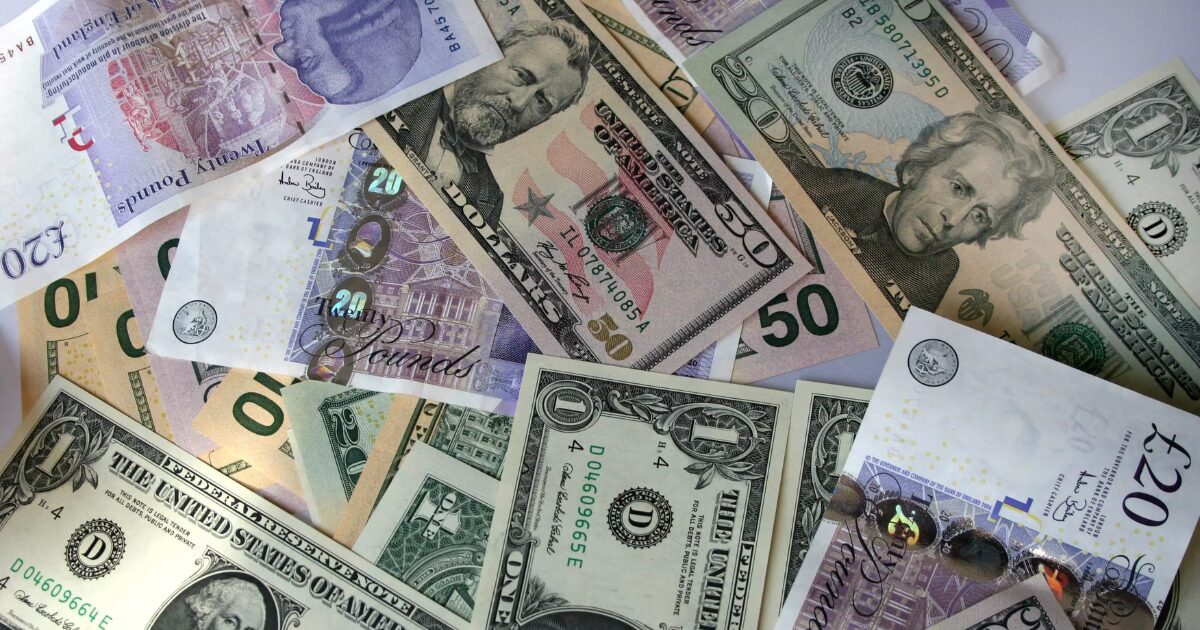How to Invest in Dubai Stock Market
 Sam Reid
Staff Writer
Sam Reid
Staff Writer 
“Dubai is home to one of the fastest-growing financial hubs in the world.” This statement reflects the reality that more residents and expats are exploring ways to grow wealth through the UAE’s stock market. Whether your goal is steady dividends, long-term capital growth, or building a diversified portfolio, knowing how to invest in Dubai stock market opportunities is the first step.
This guide explains each stage clearly, focusing on the Dubai Financial Market (DFM) while also covering other online options such as XTB for broader stock access. From securing your Investor Number to managing your portfolio, the process can be straightforward with the right approach.
Understanding the stock market in Dubai
Dubai operates a regulated stock market environment that is accessible to UAE nationals, residents, and international investors. There are three main exchanges in the UAE.
The three UAE exchanges
Dubai Financial Market (DFM) – Established in 2000 and regulated by the Securities and Commodities Authority (SCA). It operates under Shariah principles and lists a variety of companies from multiple sectors.
Abu Dhabi Securities Exchange (ADX) – Based in Abu Dhabi and also regulated by the SCA. It lists many large companies that are important to the UAE economy.
NASDAQ Dubai – An international exchange located in the Dubai International Financial Centre (DIFC), regulated by the Dubai Financial Services Authority (DFSA). It lists both regional and global securities, including shares, bonds, Sukuk, and REITs.
For most first-time Dubai investors, DFM is the usual starting point because it offers a clear structure and a variety of companies relevant to the local economy.
Step 1: Obtain your Investor Number (NIN)
Trading on DFM requires an Investor Number issued by the exchange. This acts as your unique trading ID, keeping track of your transactions and holdings.
Ways to get your NIN
-
Apply through the DFM App using your Emirates ID or passport. The process is quick and available to both residents and non-residents.
-
Apply through a licensed broker who can submit the NIN request while opening your trading account.
-
Apply in person at DFM offices if you prefer face-to-face service.
Approval is often granted the same day, allowing you to move directly to the next stage.
Step 2: Select a broker
After securing your NIN, the next step is choosing a broker. You cannot trade directly on the exchange without one.
Broker options in Dubai
-
DFM-licensed local brokers give you direct access to the exchange.
-
Bank brokerage services let you manage trading alongside regular banking, often linking dividends and purchases to your main account.
-
International online brokers such as XTB allow trading in both local and international stocks, which is useful for building a globally diversified portfolio.
When comparing brokers, check their fees, the range of available markets, platform usability, research tools, and customer service quality.
Step 3: Fund your account
Once your broker account is open, you need to add funds. Common methods include:
-
Bank transfers in AED or USD
-
Cheque deposits at broker branches
-
Transfers from linked UAE bank accounts
Online platforms like XTB also accept card payments and certain e-wallets, making the process quicker for some investors.
Step 4: Learn DFM market hours
The DFM trading schedule is:
-
Pre-opening session: 09:30 to 10:00
-
Trading session: 10:00 to 14:45
-
Pre-closing session: 14:45 to 14:55
-
Trading at last: 14:55 to 15:00
Placing trades during active sessions ensures you receive live market prices.
Step 5: Decide what to buy
When selecting a stock, base your decision on solid research.
Key considerations include:
-
Sector performance and economic trends in the UAE
-
Company fundamentals such as earnings, balance sheet health, and dividend policy
-
Trading volume and historical price movement
For example, a UAE resident who wants income stability might focus on large banks with a strong dividend history. Someone more growth-oriented might look at real estate developers or logistics companies benefiting from Dubai’s expanding trade infrastructure.
Step 6: Execute your trade
Through your broker’s platform, choose either:
-
Market orders to buy or sell immediately at the current price
-
Limit orders to set a specific price at which the trade will be completed
Always confirm share quantity, price, and total transaction cost before submitting.
Step 7: Monitor your investments
Monitoring is important for long-term success. Use the DFM app or your broker’s platform to:
-
Check portfolio performance
-
Track price changes and news
-
Download account and dividend statements
DFM-listed companies pay dividends either to your UAE bank account or to an iVestor card, which can also be used for ATM withdrawals and online transactions.
Benefits of investing through DFM
-
Regulation by the UAE Securities and Commodities Authority provides investor protection
-
Shariah-compliant investment choices
-
Open access for UAE residents and foreign nationals who meet requirements
-
Direct integration with UAE banking for smooth dividend payments
Why consider international diversification
DFM offers excellent exposure to the UAE economy but has a limited number of listed companies compared to global markets. Platforms like XTB give UAE investors access to thousands of international equities, ETFs, and other assets. This provides the opportunity to invest in industries such as technology, healthcare, and consumer goods that may be less represented on the DFM.
Managing risk in the stock market
Risk management is essential for protecting your investment capital.
-
Start with a modest amount until you are comfortable with the process
-
Spread investments across multiple sectors
-
Reinvest dividends to compound returns over time
-
Follow market announcements and company updates regularly
-
Stick to a clear plan and avoid impulsive decisions
A realistic example of a UAE-based investor
A resident opens a NIN via the DFM app and then selects a DFM-licensed broker through their bank. They begin by purchasing shares in a major UAE bank and a regional logistics company. Over several months, dividends are credited directly to their bank account, and these funds are reinvested into additional shares. After building a local base, the investor also opens an account with XTB to purchase shares in global technology firms. This strategy allows them to combine stable local holdings with international growth opportunities.
Stock market FAQs
Can I invest in Dubai stocks?
Yes. Any UAE resident, national, or eligible foreign investor can invest by obtaining a NIN and opening an account with a licensed broker.
How to start investing in stocks in Dubai?
Apply for a NIN, choose a broker, fund your account, research companies, and place trades through the broker’s platform.
How to invest 1000 AED in UAE?
Choose a broker with low minimum deposit requirements and focus on one or two companies with solid fundamentals. Build up your portfolio gradually.
What is the 7% rule in stocks?
The 7% rule is a guideline where an investor considers selling a stock if it drops more than 7 percent from the purchase price to prevent larger losses. Whether to apply this depends on your individual strategy and risk tolerance.
Final thoughts
Learning how to invest in Dubai stock market opportunities starts with understanding the DFM, securing your NIN, and selecting a broker that meets your needs. By combining local investments with international diversification through platforms like XTB, investors in the UAE can create balanced portfolios that are both resilient and positioned for growth.
Disclaimer: Remember that investing and CFD trading involves high risk. Always do your own research and never invest what you cannot afford to lose.
 09th Aug 2025
09th Aug 2025









